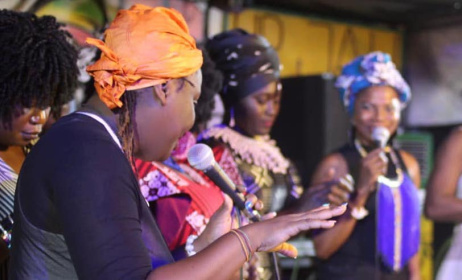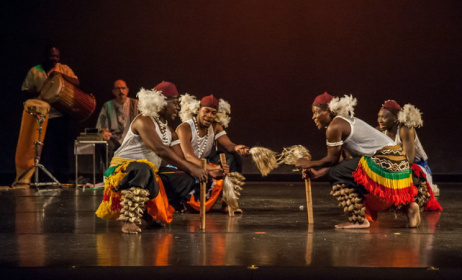Ghana: Afro-rock Osibisa band lead Teddy Osei dead at 88
Iconic Ghanaian musician, founder, and band leader of legendary Afro-rock group Osibisa, Teddy Osei, passed away on 17 January. He was 88.
 The late Teddy Osei.
The late Teddy Osei.
Teddy died at Apple Tree Care Home in London, where he had been resident for the past five years due to illness.
“We are deeply saddened by the death of our dear client and friend, Teddy Osei,” a statement from Osibisa management reads. “Known the world over as the leader and founder of Osibisa, the groundbreaking Afro-Rock band, he was a talented and passionate man, musician, and mentor to many.
“As a talented saxophone player, drummer and vocalist, Teddy found success but also fulfilment with his bands, most notably Osibisa. He was an important voice in music and culture, and will be missed, but not forgotten.”
Since the announcement of his passing, tributes have been pouring in on social media from people from all walks of life, including former colleagues and fans who have been touched by Osibisa’s music in some way.
Born Francis Teddy Osei on 1 December 1937, in Kumasi, Ghana’s second-largest city. He arrived in England in the 1960s on a government scholarship from Ghana’s first president, Dr. Kwame Nkrumah, to study music. By 1969, he had persuaded his brother Mac Tonto and Sol Amarfio, both deceased, who had previously played together in the Star Gazers and the Comets bands in Ghana, to join him in London to form Osibisa.
The original line-up included three Ghanaians: Teddy Osei, Mac Tonto, and Sol Amarfio, along with Antiguan Wendell (Dell) Richardson (lead guitar and lead vocalist), Nigerian Lasisi Amao (percussionist and tenor saxophonist), Grenadian Roger Bedeau, also known as Spartacus R (bass), and Trinidadian Robert Bailey (keyboards). Later replacements included Nigerians Fred Coker and Mike Odumosu (bass).
Osibisa became the most successful and longest-lived African-heritage band in the UK, pioneering a new sound that blended European, American, and African influences, creating an early form of what would become recognized as World Music. With their fusion of tribal percussion, soulful horns, and joyful, timeless African singing, the band spent much of the 1970s touring the world, playing to large audiences in Japan, Australasia, India, and Africa, bringing their “criss-cross rhythms that explode with happiness” to audiences worldwide.
During this time, Paul Golly (guitar) and Ghanaians Daku Adams (percussion) and Kiki Gyan (keyboards) were also members of the band. In January 1976, their single ‘Sunshine Day’ reached number 17 on the UK singles chart. Their next single release, ‘Dance the Body Music’, peaked at number 31 in the same listing.
In 1980, Osibisa performed at a special Zimbabwean independence celebration, and in 1983, they were filmed onstage at the Marquee Club in London. The band released a further eight albums during the 1970s, with additional studio albums and live releases following through the 1980s and up to the New Dawn album release in 2021.
In November last year, UK label Cherry Records released a double CD featuring 18 remastered tracks from Osibisa’s 1974 and 1975 albums, sourced from Warner Brothers’ archives.




























Commentaires
s'identifier or register to post comments